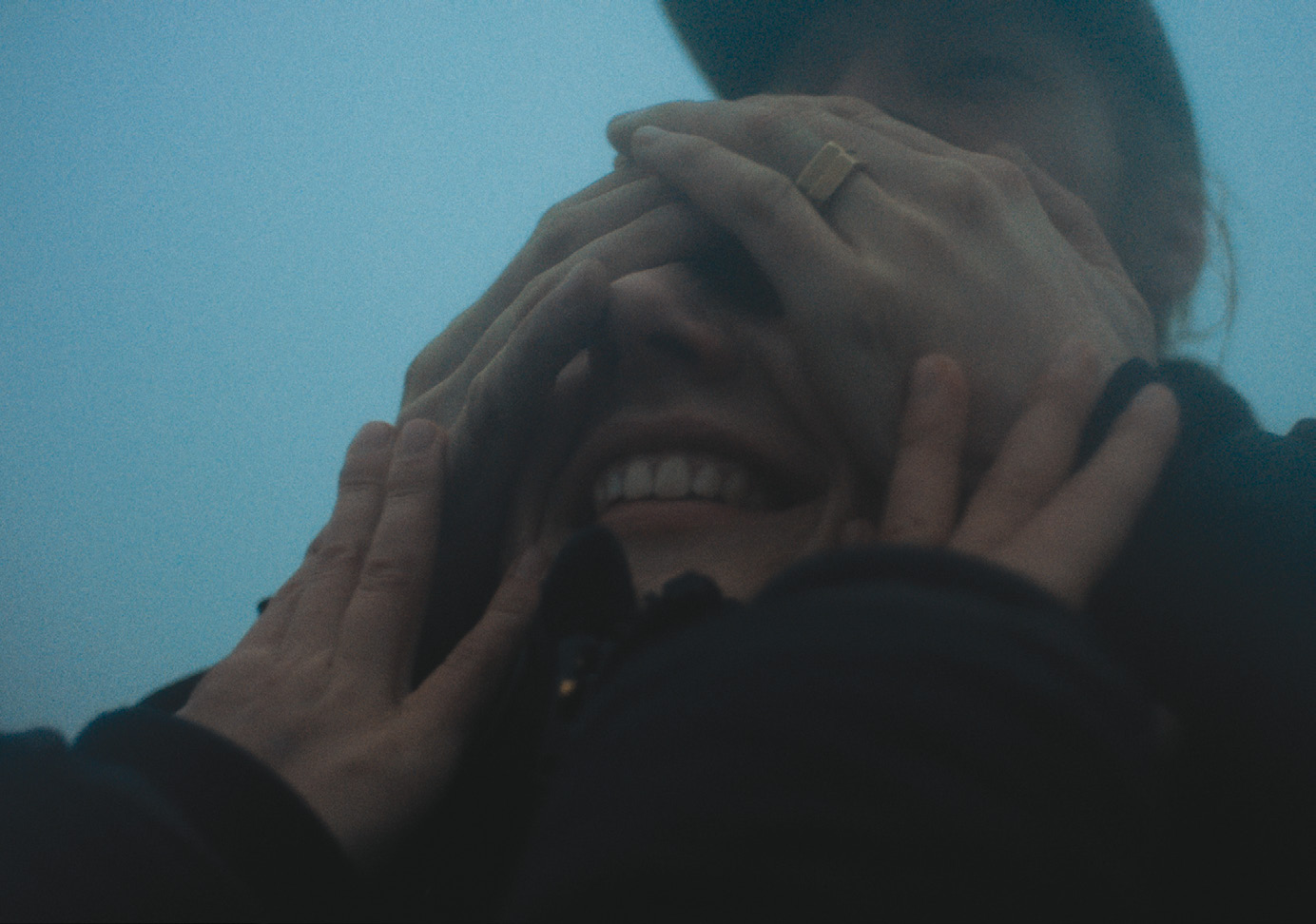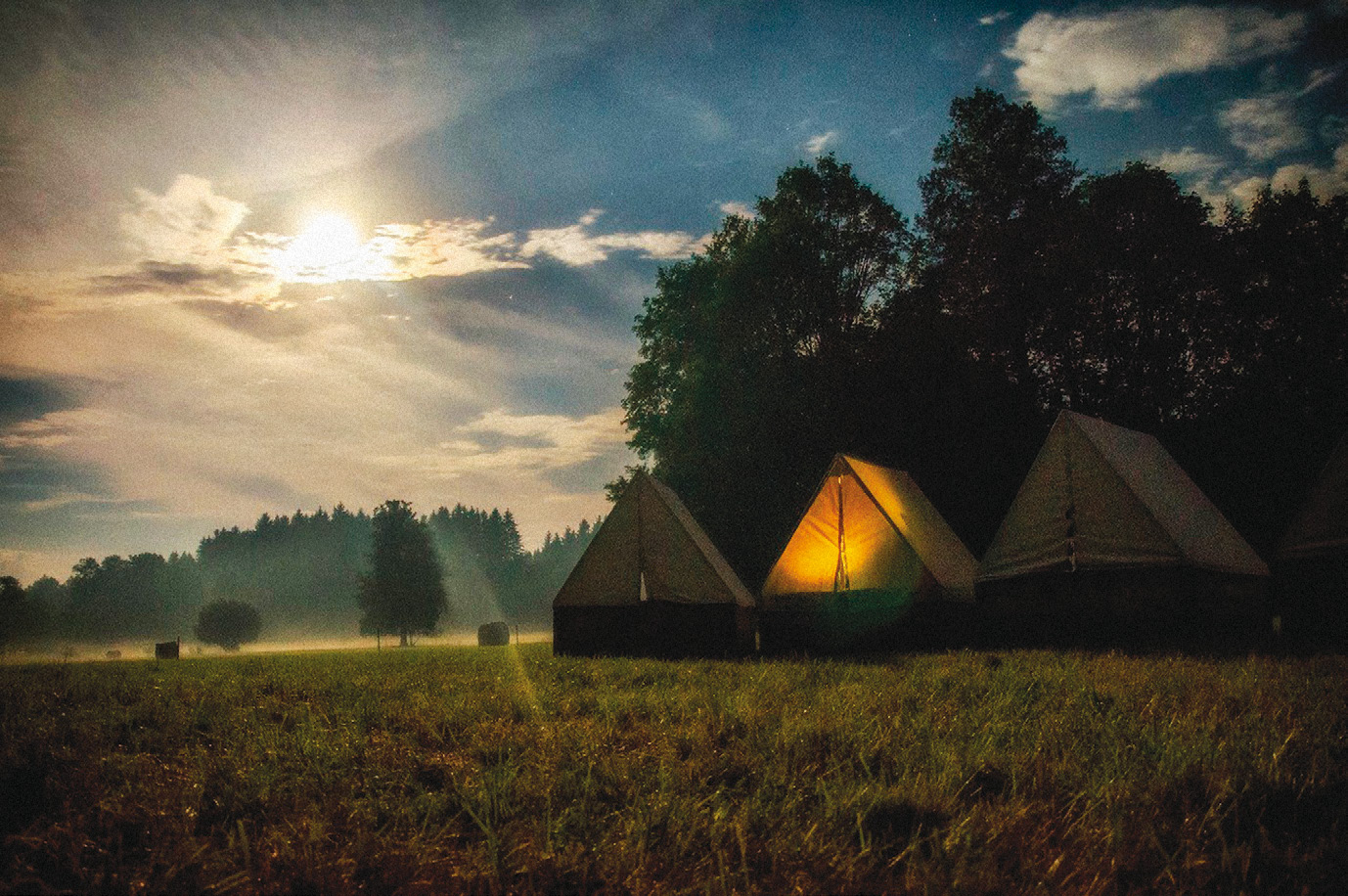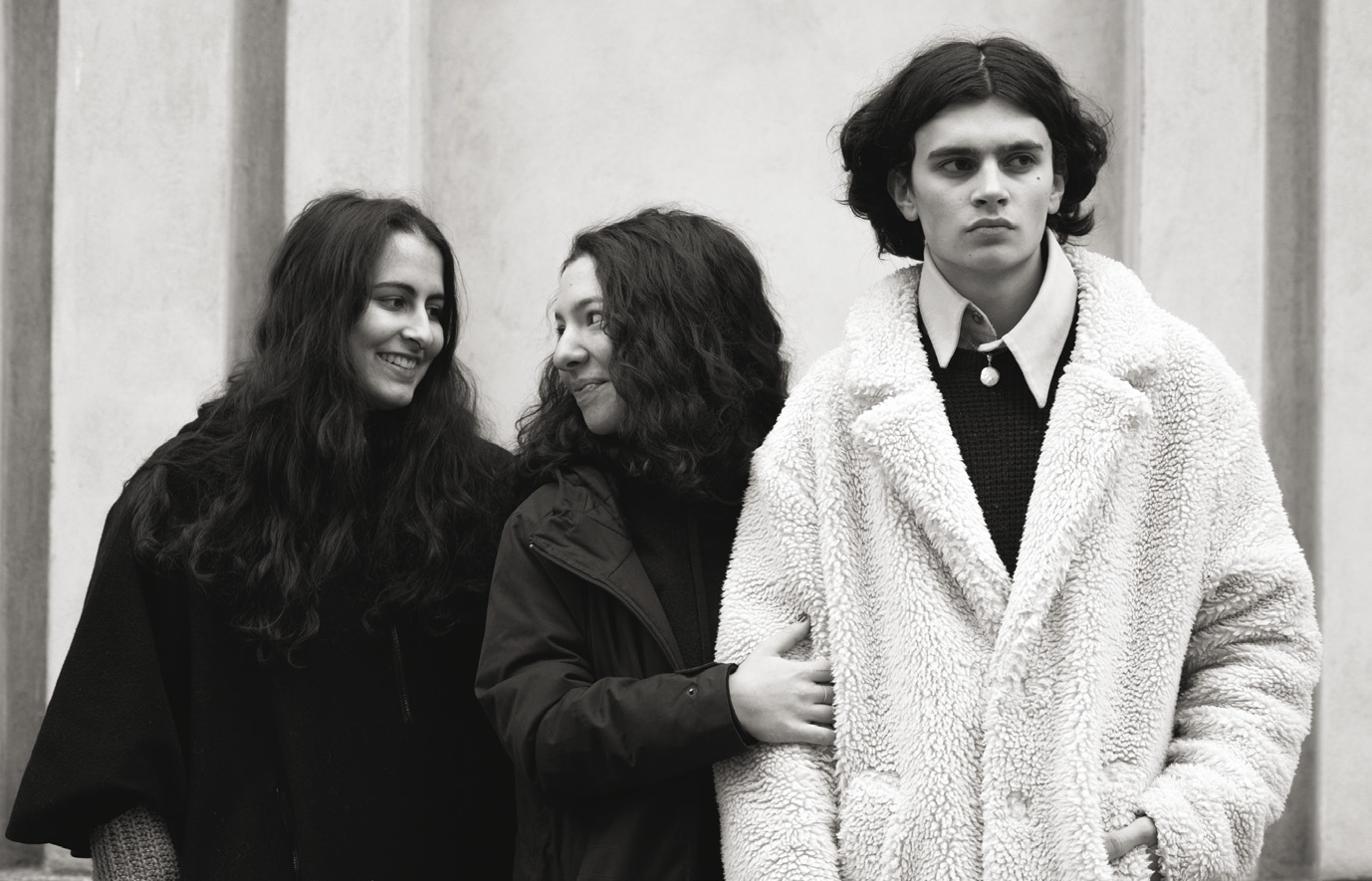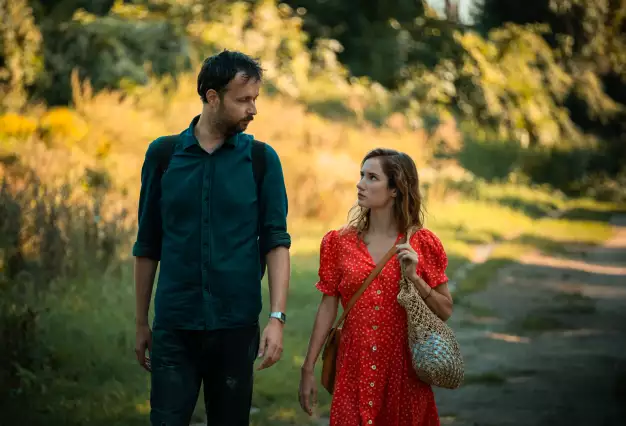
20 September 2022
Czech Film Springboard 2022: Introducing the projects
Youngest Generation in Full Gear
Czech Film Springboard 2022: Introducing the projects
Youngest Generation in Full Gear

The 2022 selection of domestic projects in development brings to the fore the youngest filmmakers and their generational baggage of issues, anxieties, politics, as well as their insights on a rapidly changing world.
Article by Martin Kudláč for CZECH FILM / Fall 2022 magazine
The industry platform Czech Film Springboard, founded in 2016 to give nascent domestic projects their initial push onto the international industry circuit, has become the country’s go-to pitching and networking forum. Emerging filmmakers, promising producers, and budding projects with export potential all make a point of having a presence there each year.
In the six years of its existence, the meticulously curated selection of early-development projects and early-career filmmakers has established a reputation for spotlighting under-the-radar projects that have gone on to bear fruit. Martin Foukal’s Two Ships, a tragic romance based on true events, premiered last year at the Karlovy Vary IFF. Olmo Omerzu has built an international profile after his sophomore film, Winter Flies, appeared at the Czech Film Springboard, and so has Václav Kadrnka, after presenting the final instalment of his personal trilogy Saving One Who Was Dead, which went on to reap awards in Asia.
Another Czech Film Springboard alumni project, Cristina Groșan’s Ordinary Failures, premieres in September at Giornate degli Autori in Venice, and a trio of films by domestic filmmakers that are eagerly awaited as we speak were all likewise introduced at CFS: Snake Gas, a Heart of Darkness-inspired river movie; Robert Hloz’s ambitious sci-fi thriller Restore Point; and the I, Olga Hepnarova team’s follow-up project, Nobody Likes Me. All three projects are currently in postproduction.
This year’s Springboard selection heralds the arrival of yet another new cohort in Czech cinema, bringing their own generational baggage of issues, anxieties, and politics, as well as their insights on a rapidly changing world.
Insider’s perspective on Gen Y’s tribulations and mental health issues
Czech Film Springboard is not solely a launching pad for rising writers and directors but also for early-career producers and the class of 2022 welcomes several returnees. Matěj Paclík of Breathless Films returns after his presentation last year of Slaughter, now building a buzz in industry circles abroad. This time out, the young producer accompanies yet another promising project by a debuting filmmaker, We're Not Doing Fine, by Natália Antoňáková.
Antoňáková won the Star of Tomorrow award for her We're Not Doing Fine script in the Czech Film Foundation’s annual screenplay competition, and despite being a FAMU screenwriting graduate, she will be translating the story into moving pictures as the film’s director, in line with her plans to pursue this career path further.
In We're Not Doing Fine, three Gen Y peers find themselves caught in a vicious cycle of trying and failing. The story focuses on mental health issues and the crisis in committed relationships. Writer-director Antoňáková describes the protagonists as “malfunctioning” (Malfunction was also the previous working title of her project) as her film observes their fears, desires, and anxieties. While her colleagues have called it a Loners for the new generation, referencing David Ondříček’s tragicomic portrayal of a generation at the end of the 20th century, the director herself cites Joachim Trier’s acclaimed dramedy about millennials in crisis, The Worst Person in the World.
“I’m going to create three-dimensional and believable characters, whose life struggles, mistakes, and aspirations will authentically portray the life of Generation Y,” said Antoňáková, elaborating on her approach. “Regarding the visual style and form of We're Not Doing Fine, my predominant approach will be very minimalistic, a subtle, often hand-held camera moving with the story but also in sync with the character’s emotional development, enhanced by a civil but deeply elaborate mise-en-scène, creating an authentic backdrop for every character’s own plot-driven storyline.”
According to Paclík, production should begin in autumn 2023, leading to a world premiere in 2024 or 2025. Czech Television has expressed interest to board the project as co-producer. Paclík says he remains open to exploring coproduction opportunities with Poland, and besides having a foreign editor, other creative roles may also be filled by professionals from abroad.
The director has already cast her leading triumvirate of characters, all of them her age, and the rest of the crew will come from the same generation. In short, We're Not Doing Fine will be a story by Gen Y for Gen Y, boosting both the story’s generational sentiment and its authenticity. Following Czech Film Springboard, Paclík plans to pitch the project at international forums and coproduction markets, in particular at Tallinn and Les Arcs. Additionally, he is looking to open discussions with potential sales agents.

Intergenerational blast from the past
Another young domestic production outfit currently making inroads on the independent film scene thanks to Czech Film Springboard is DARQ Studio. Though initially founded to work on commercial projects, DARQ has since shifted to independent film production and now has three projects in the pipeline.
After coproducing the romance Avalanche of Love by budding filmmaker Jakub Machala, DARQ is currently working on Machala’s next project, the youth drama Bikes. In addition, producer Kateřina Buzková is developing another fiction feature debut, the summer scouting adventure Smarty & Fang, directed by rising filmmaker Jan Bártek and written by Tomáš Pavlíček, a promising director whose films Totally Talking and Bear With Us both premiered at Karlovy Vary IFF.
As avid scouts, Buzková and Bártek hired Pavlíček, also a scouting enthusiast, to write Smarty & Fang, an intergenerational coming-of-age story involving children, parents, and summer camps. Buzková said her reason for wanting to make the film was to compare childhood experiences in the mid-90s with those of the early 21st century.
Smarty & Fang depicts the whimsical reconciliation of the titular childhood friends: Smarty, a tech specialist with a family, and Fang, who runs a pizzeria. An awkward encounter between the two former best friends triggers a journey down memory lane as they relive their summer scout camp exploits and the events that tore apart the bond between them.
In addition to continuing in the tradition of Czech children’s cinema, Smarty & Fang incorporates the parental generation into what is envisioned as a wholesome family film. Intended to attract younger viewers with its portrayal of summer camp high jinks and an analogue childhood with no cell phones, smartwatches, or internet, at the same time, the story offers parents a chance to reminisce about the golden age of their youth, when their life choices were made.
While Smarty & Fang marks the feature-length fiction debut for Bártek, the young director is no newcomer to the audiovisual industry. He has already helmed several television projects, including children’s shows and the cult satirical series Cosmic. Bártek’s directing star is anticipated to rise even higher soon, as he was recently tapped to direct the series Sex O'Clock, a Czech response to Netflix’s Sex Education.
The Czech Film Fund provided support for both the screenplay and project development of Smarty & Fang. With the project in early development now, and a second draft of the screenplay already polished, Buzková expects principal photography to begin in summer 2023 or ’24.
In terms of postproduction, the producer does not anticipate any difficulties and plans to release the film in the spring after shooting wraps. Currently, Buzková is seeking coproduction partners among fellow scouts, sensing a strong community in Germany and Poland. Festivals such as the Zlín Film Festival for Children and Youth will be among the main targets when introducing the film to the international circuit.

Massive coming-out
The stream of new domestic talents premiering debuts continues apace, as they work hard to establish their burgeoning reputations in the industry. One of the most prolific creators to emerge from the pandemic is producer, writer, director, and composer Šimon Holý.
Holý debuted last year at the Karlovy Vary IFF with his DIY indie drama Mirrors in the Dark, a semi-mumblecore chamber piece about a millennial pair. Then, less than a year after his debut, the young director completed his follow-up feature, And Then There Was Love, which celebrated its world premiere at the largest Czech film gathering in Karlovy Vary.
This year’s Czech Film Springboard welcomes Holý’s third feature film, the semi-autobiographical coming-of-age drama Thinking David, exploring the issue of a minority within a minority through the experiences of a young Jewish boy named David. As the protagonist probes his Jewish identity on a trip to Israel, the experience leads him to come out as gay to his family, friends, and community, a bold gesture marking his first step into adulthood.
Thinking David represents Holý’s contribution to the Czech Republic’s nascent queer cinema movement. “Amid rising antisemitism and homophobia, both I and my crew strongly feel that this film can raise awareness and speak to the young generation in this polarized world in a way they understand,” Holý said. The script was developed during the MIDPOINT Feature Launch 2021 and the Czech Film Fund supported the script and project development. Helium Film, which coproduced the most successful domestic documentary, Caught in the Net, is producing Thinking David.
While maintaining his commitment to the young filmmakers’ movement known as Czech New Intimacy, Holý explained that his forthcoming work is in a whole different category and that Thinking David should not be judged on the basis of his indie mumblecore beginnings. The new project is planned as a five-sided coproduction between the Czech Republic (Helium Film, šššššFilm, Czech Television), Hungary (Filmfabriq), Israel (Laila Films), and likely France plus one other country.
A third of the film will be shot on location in Israel, while principal photography is scheduled for a massive 45 days starting in spring 2024, and is expected to wrap in December. Many scenes will require plenty of extras, and the budget for the project has climbed to €1.8 million. Even though the production will be large, the postproduction process should be fairly rapid, and the final cut could be ready as early as May 2025. Holý already has the final script in hand and the project is nearing early preproduction.
Taglit will be captured for the first time on camera in Thinking David, which will be intriguing, especially for Israeli viewers. According to Holý, his third film will likely be considered mainstream in Israel. French-Israeli actress Sarah Adler (The Cakemaker, Foxtrot) is confirmed for a supporting role, while the Slovak-born France-based actress Jana Bittnerova (Dheepan, In the House) will play David’s mother.
The director describes Thinking David as a road movie with no road and an American Honey moment; a Call Me by Your Name coming-of-age tale with multiple heartbreaks; and a male version of Blue Is the Warmest Color with unflinchingly graphic scenes packaged in the form of a psychological drama. The producers are already in talks with sales agents interested in handling the project.

More familiar story than fiction
Producer Dagmar Sedláčková, of the Prague-based independent auteur-driven company MasterFilm, will introduce yet another hopeful debut, titled The Thirty-Seventh Kilometre, at this year’s Czech Film Springboard. MasterFilm coproduced the Ukrainian war drama Butterfly Vision and is currently preparing one of the most eagerly awaited debuts in the Czech Republic, Zuzana Kirchnerová’s road drama Caravan.
A coming-of-age drama with elements of a mystery thriller, The Thirty-Seventh Kilometre, is the directorial debut of Minsk-born Prague-based writer-director Sasha Stelchenko. The young director already captured the attention of international professionals with Deserter, his short film about a couple’s son reported missing in action in Ukraine, which premiered at the Festival Premiers Plans d’Angers. The film went on to screen at dozens of festivals internationally and ended up with a nomination for Best Short Film in the Czech Republic’s 2019 Magnesia Awards.
The Thirty-Seventh Kilometre follows a 17-year-old woman named Sonja, who fails to help a young soldier after he deserts the local military base. Her frustration over his disappearance leads her to search for the truth about the isolated military town and its rules, leading to alienation between her and her father, a retired army official. When the situation in Sonja’s hometown takes a bloody turn, she suddenly finds herself facing a moral challenge. Stelchenko describes his debut as a story about “disillusionment, dignity, the strength of individual commitment, and the power of collective action,” adding that The Thirty-Seventh Kilometre communicates “experiences that will be very familiar to many generations on the regional level.”
After several workshopping sessions, mostly in France, the emerging director is now finishing his first draft of the screenplay. According to producer Sedláčková, there are more international workshops and markets to come, including The Résidence, Torino Script Lab, and Les Arcs Coproduction Village.
The Czech Film Fund supported the project’s development, and principal photography will begin in 2025, allowing postproduction to be completed by early 2026. The world premiere should follow in spring 2026.
“I aim to enrich the otherwise realistic narrative with symbolism and to root it in folklore and mythology in line with the idea of nature as a primordial force, a force of freedom. The relationship between human beings and nature, and the coexistence of these two worlds, are particularly interesting and inspiring to me, and I feel they enrich not only the plot but also the general visual strategy of the project. I want the visual language to implicate a subtle subjectivity while at the same time producing a mood of creeping danger, the presence of an external force,” the director said, explaining his vision, in particular the integration of genre aspects into the arthouse drama.
Sedláčková plans to bring more coproducers on board, especially from the Baltic states and Poland. In addition to hiring actors from these countries, she envisions foreign professionals filling several creative roles during shooting on locations outside the Czech Republic. As a result of Stelchenko’s success in France and his participation in workshops there, the producer is seeking a French partner for postproduction works.
“The Thirty-Seventh Kilometre presents an allegorical portrait of an imagined patriarchal society corrupted by nepotism and centralized power. I believe this has echoes for any post-communist system with a Western-like facade and deep imprints of so-called traditional values at its core,” noted the director. He added that the source of inspiration and the starting point for the concept of the project were his memories and experience in his home country, Belarus.
“First and foremost,” Sedláčková of MasterFilm elaborated, “[Stelchenko] is invested in the conflicts between forced ideals and basic human values.” According to both her and the director, Kantemir Balagov’s Closeness, Amat Escalante’s The Untamed, and Cristian Mungiu’s Graduation are crucial artistic references for the project.





